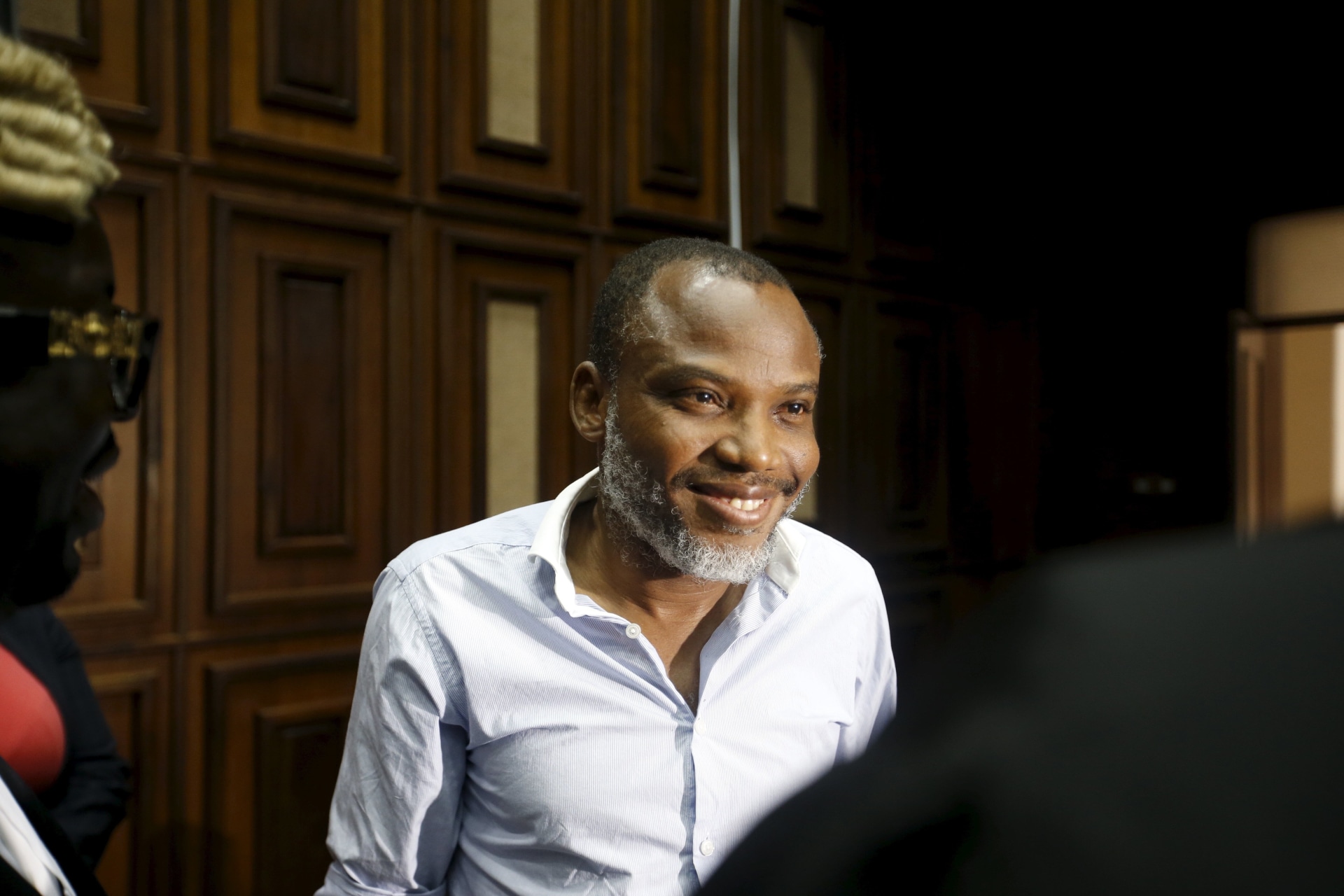Apprehension of Biafra Leader Poses Challenges for Nigeria’s Government

By experts and staff
- Published
By
- John CampbellRalph Bunche Senior Fellow for Africa Policy Studies
Nigerian Minister of Justice Abubakar Malami announced yesterday that Nnamdi Kanu, leader of the separatist Indigenous People of Biafra (IPOB), was apprehended abroad on June 27 and has been returned to Nigeria for trial. Kanu poses a challenge to the administration of President Muhammadu Buhari and, indeed, to the unity of Nigeria. Separatist sentiment in the South East—the heart of the former Biafra—has been growing, and Kanu appears to have some degree of popular support. If the government botches Kanu’s trial and the atmospherics around it, it risks further inflaming separatism. Initial signs are not good.
The government has not announced where abroad or how Kanu was apprehended, except to say that it was with the assistance of Interpol. Kanu is a British citizen and his headquarters has been in London. One source says that he was apprehended in the United Kingdom, but British authorities deny it. It seems inevitable that social media will include claims that he was kidnapped. For his initial court appearance, the security services allegedly blindfolded him, handcuffed him, chained his legs, and smuggled him in through the back door. He made no statement.
Kanu was arrested in 2015 on numerous charges, including treason; he was released on bail in 2017 and then fled abroad. Since then, he has been a thorn in the side of the Buhari government, and his Radio Biafra, based in the United Kingdom, continues to advocate for Biafran independence. He is the leader of the IPOB which the Nigerian government has designated a terrorist organization. He also helped establish IPOB’s armed wing, the Eastern Security Network, which has attacked police stations. In addition to pushing for Biafran independence, Kanu’s rhetoric is bitterly hostile to Hausa-Fulani Muslims, especially herders moving south in search of pasture. He and other Biafra separatists denounce the Buhari government as Muslim and Fulani dominated.
For its part, President Buhari’s government has long reacted viscerally to Biafran separatism. Buhari and his generation fought in the 1967-70 civil war against Biafran separatism. They were successful, but up to two million died in the conflict, mostly of disease and starvation. Biafra was quickly reincorporated into Nigeria, but many Igbos retain a sense of grievance.
In the face of current rampant insecurity in Nigeria and a stalled or declining economy, separatist sentiment has been growing in the South East (Biafra) but also in Yorubaland. Removing Kanu from the picture is unlikely to set back Biafran separatism, just as the death of warlord Abubakar Shekau does not appear to have set back jihadi terrorism in the North East. Indeed, Kanu’s jailing could provide the space for other Biafran separatist leaders to emerge.
